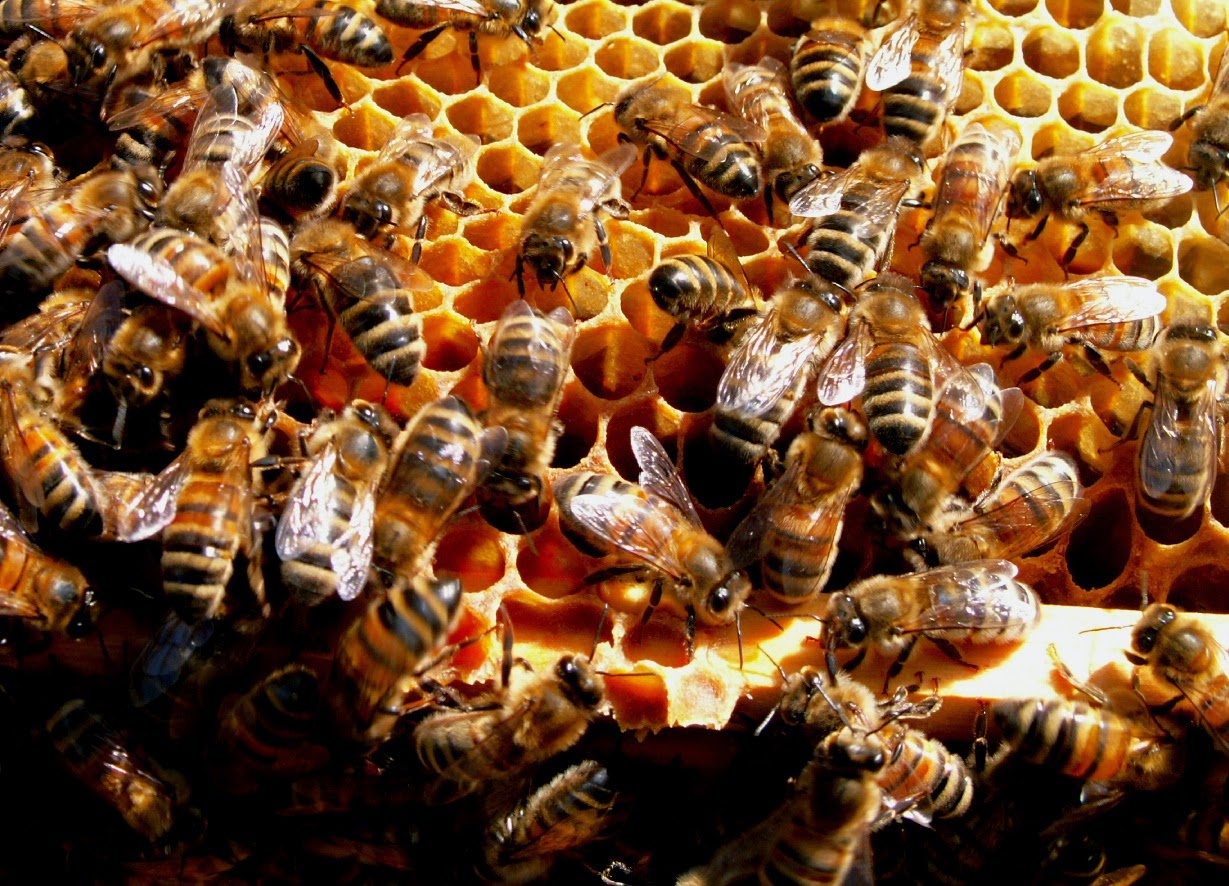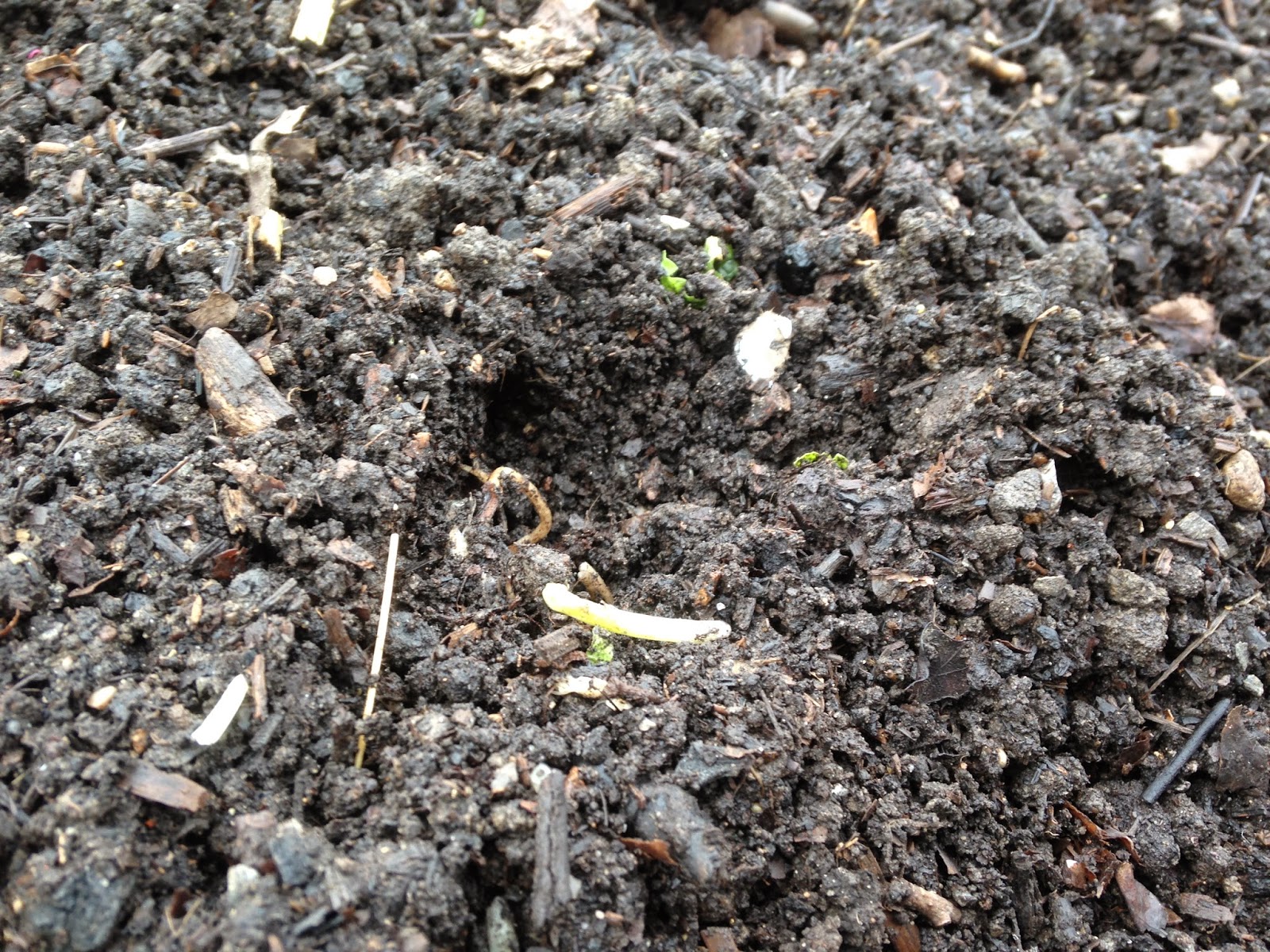Field Study's Man in E11 lurks in the depths of pathological ignorance
Hive inspection - 13th April 2014.
I don't know why I didn't scratch away at just a few of the capped honeycomb cells to see what was concealed. I don't recall having seen capped honeycomb like this before. Perhaps it was lack of curiosity and all too willing ignorance; or fear. Our field study of the allotment is becoming something of a pestilential odyssey and there are few fields that match those of honeybees and beekeeping for pests and diseases. Bikini red is the constant state of alert for apiculturalists. If the chimeric field student is out to infest every nook, cranny and niche of the plot with all that is unremittingly baneful then the apiary, and the sole surviving hive, would be the epicentre of his demonic connivance. The demonizing of the field student played on my mind for it seemed I had also been lured into a trap of demonizing those afflicted by him - as if everything were host to him and consumed by him so as to be inseparable and complicit. That a thing diseased is the disease was a horrifying thought. We were situated at the very inner limits of our understanding of the pathology of sweetness when we opened up the hive. This is some of what we found.
13th April 2014
2014-04-15 10.10.39
Here Herman Melville Was
Moby Dick
Subjectivity of perception
Chief among the thematic content are Melville's epistemological views. The American edition has Ahab "discover no sign" (Ch, 133) of the whale when he is staring in the deep. In fact, Moby Dick is then swimming up at him. In the British edition, Melville changed the word "discover" to "perceive." And with good reason, for "discovery" means finding what is already there, but "perceiving," or better still, perception is "a matter of shaping what exists by the way in which we see it."[42] The point is not that Ahab would discover the whale as an object, but that he would perceive it as a symbol of his making.[43] This theme pervades the whole book, perhaps never so emphatically as in "The Doubloon" (Ch. 99), where each crew member perceives the coin in a way shaped by his own personality.













Comments
Post a Comment